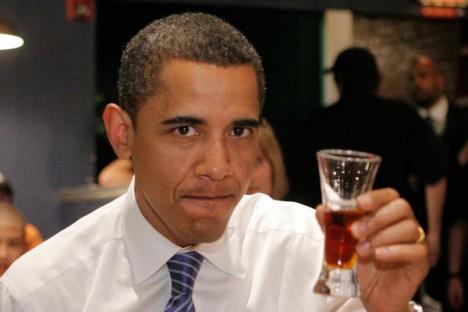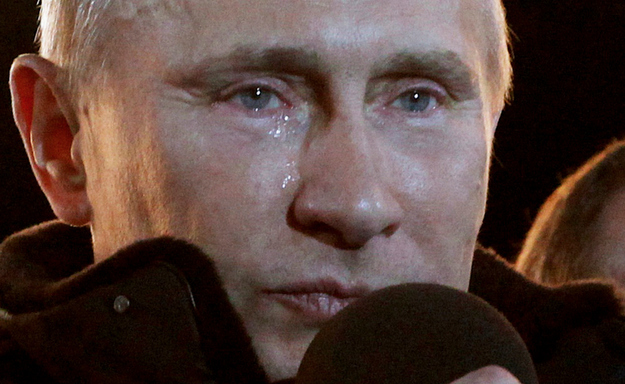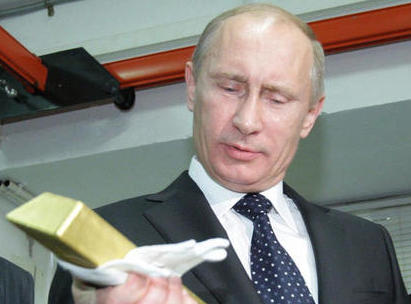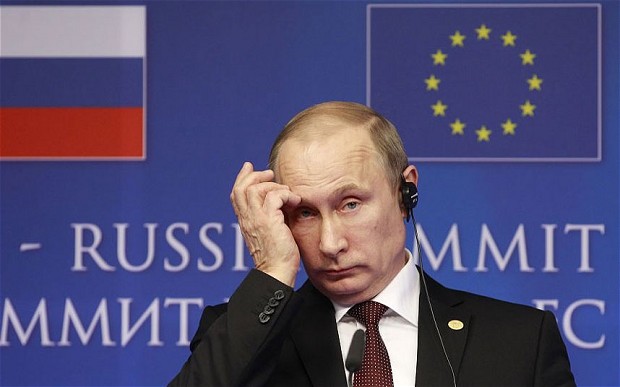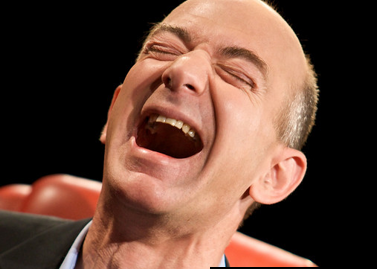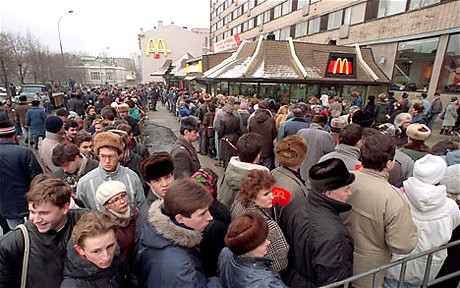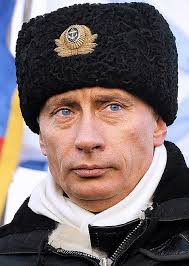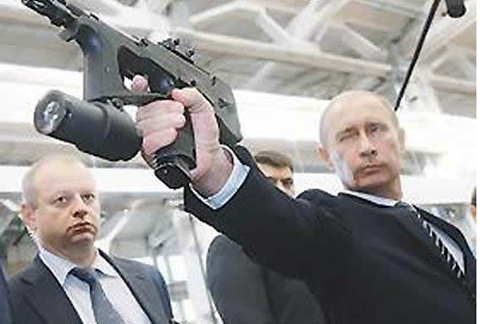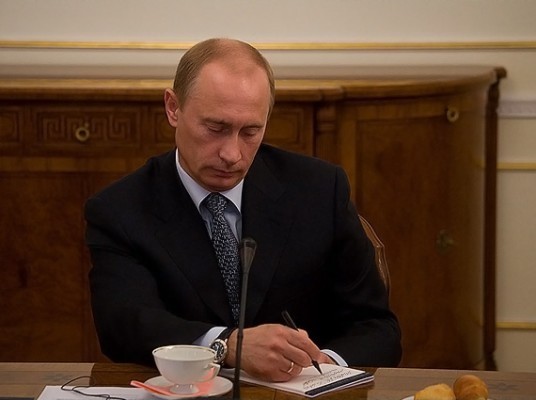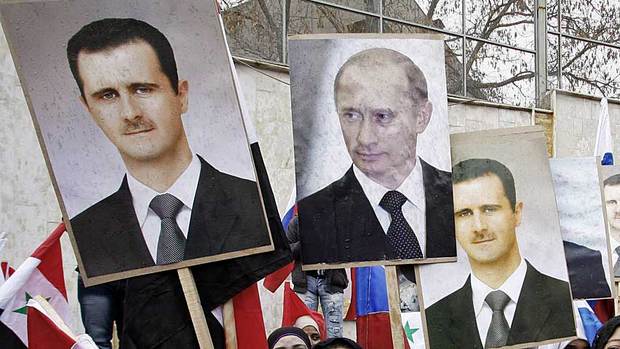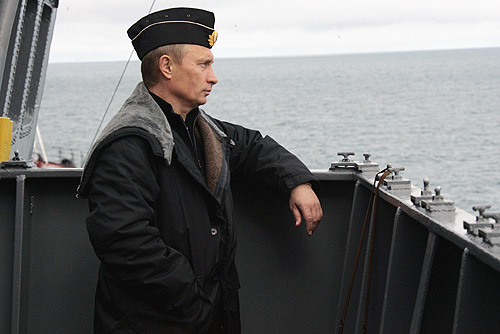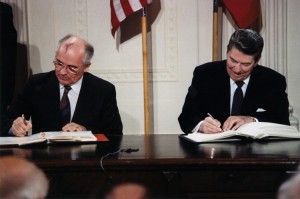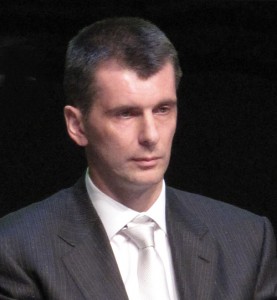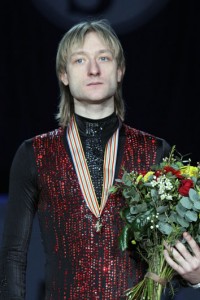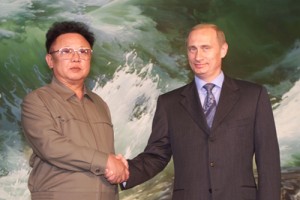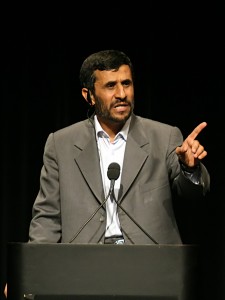
I got this blazer on sale at Korvette's. Such savings you would not believe!
Mahmoud Ahmadinejad: With the U.S. and the U.S.S.R., one was just as bad as the other. Both contributed to the destruction of world values. They talked about prosperity and wealth, but they killed more than 120 million individuals in the last 120 years and made many more homeless and injured.
Decoder: I’m the only person on the planet annoying enough to make Russia agree with Obama on anything. I mean, the Russians side with North Fucking Korea over the U.S. And Kim Jong-il is one suspicious Happy Meal from being Idi Amin.
Mahmoud Ahmadinejad: I am proudly announcing today that our scientists have gotten laser technology and will be manufacturing and providing the Iranian nation with new equipment.
Decoder: Lazer Zeppelin is upon us, and we will have the technology to produce Lazer Floyd within six months.
Mahmoud Ahmadinejad: Today many of our cities enjoy electricity, schools, health, activities in villages that were on the verge of destruction. I do not want to offer figures and statistics; you are all aware of them.
Decoder: You’re not all aware of them? Let me see if I have them on me. Oh, I know, I must have left them in the pocket of my other Members Only jacket. But they are so very awesome, I swear.
Mahmoud Ahmadinejad: I want to proudly announce that in the next few days we will have celebrations for electricity being transferred to all villages with more than 20 households.
Decoder: 1934, here we come!

The Tehran planetarium will be rocking. (Image by Dina Regine.)
Mahmoud Ahmadinejad: Due to the blessings of God Almighty, today the convoy of the Iranian nation’s progress and prosperity is moving forward more swiftly and no power can resist the power of the Iranian nation.
Decoder: I am not going to stop talking until I get this whole fucking country blown up.
Mahmoud Ahmadinejad: With no doubt, the future belongs to the Iranian nation. Its enemies have no chance for victory.
Decoder: My penis, it is very small, so I talk really big. You should hear me in clubs and bars.
Mahmoud Ahmadinejad: Liberalism is trying to turn all nations into laborers to fill the pockets of capitalists. They want to make a modern slavery.
Decoder: Though Casual Fridays are really fun. And that new lady in HR doesn’t seem bad. I think her name is “Carol.”
Mahmoud Ahmadinejad: The Allies’ victory in WWII was due to plundering the energy resources of the Middle East.
Decoder: I know even less about history than Sarah Palin.
Mahmoud Ahmadinejad: They want us to be kept weak and under the domination of atrocious dictators.
Decoder: No, not me, Mr. Funnypants. The other atrocious dictators.
Mahmoud Ahmadinejad: Hopefully, the Western wing of the hegemonic system has come to its end and this malicious system will hopefully collapse.
Decoder: Actually, it kind of already has, but they seem to still be way richer than us, which has me baffled.
Mahmoud Ahmadinejad: From a scientific view we have made the swiftest signs of progress in the world.
Decoder: Did I mention only six months to Lazer Floyd?
Mahmoud Ahmadinejad: I am proud to announce that, the day before yesterday, we began to enrich the 20% fuel. The first convoy of 20%-enriched fuel was produced.
Decoder: It was very likely not produced, but again: little penis = big talk.
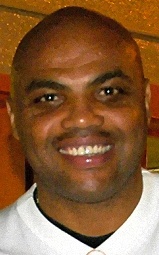
Thinks he's agreed to host an Aziz Ansari roast. (Image by Scott LaPierre.)
Mahmoud Ahmajinedad: They should know that our nation is so courageous that if we make a nuclear bomb, we will openly announce it.
Decoder: And Charles Barkley has agreed to do color commentary. No, seriously, he actually agreed to do it. He’s apparently crazy.
Mahmoud Ahmadinejad: We will never allow the West to dominate this region.
Decoder: And by oppressing my own people and creating such a sick society, I will make sure we never dominate this region, either.
Mahmoud Ahmadinejad: The Iranian youth have a right to seek justice and truth. They have a right to build their own future on the foundations of love, compassion and tranquility.
Decoder: And when they finally do, I am so totally fucked.

